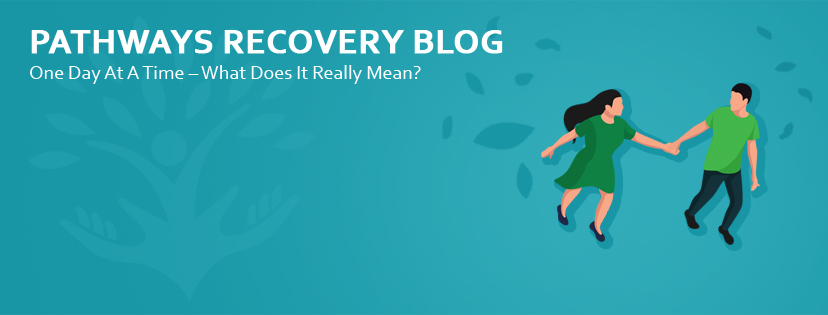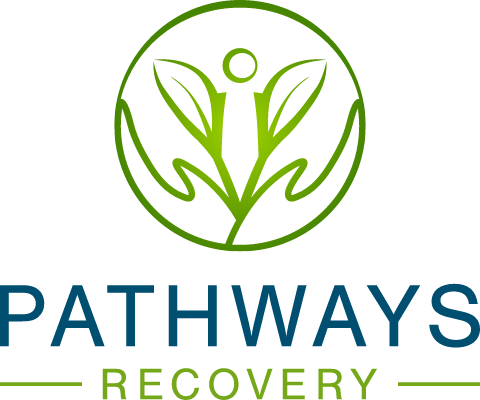Living in the present is a difficult task for many people. Anxieties about the future and regrets about the past can haunt us and make it seem as though living for today is out of the question. While trying to focus on the present can be difficult, it’s the best way to embrace the limited time you have each day and take on challenges one day at a time.
We can’t know the future, and we can’t change the past. The only solution is to move forward little by little and focus on what we can handle and do today.
Difficulties of Living One Day at a Time with Substance Use Disorder

There are multiple reasons why an individual would want to seek an escape from reality. In some cases, a traumatic experience might have served to breed distrust of any future connections and relationships with others. Humans are social creatures by nature. Dependable, trustworthy, and intimate relationships are valued connections.
When a traumatic experience like betrayal or dishonesty occurs, an individual becomes wary of other relationships. When trust is broken, it takes a while to rebuild. In some cases, individuals begin to distance themselves from others and turn to substance use in an attempt to fill unmet emotional needs.
Substance use skews an individual’s perspective and creates an illusionary world separate from reality. This is why many individuals reach a critical stage in their substance use or “rock bottom” before entering into an addiction treatment program.
Why Is Living One Day at a Time Important?
When you enter into a treatment program, you have a chance to reassess your situation and take back control of your life. In recovery, it’s important to understand and come to terms with the reality of the way things are now.

By focusing on the here and now, you can worry less about the uncontrollable variables and start living your life to the fullest.
You have the ability to make decisions now that will build up your legacy and stabilize your future. Remember that living in the present means that you take it one day at a time. Big changes don’t happen overnight, whether that’s in the recovery space or anywhere else. But over time, each day that you make it through is another stepping stone and great accomplishment.
The Five Rules of Recovery
To keep up with your recovery journey, it can be helpful to know what makes up the right track and the expectations that go along with it. There are five common rules of recovery in the addiction treatment world. These five rules cover the majority of what you need to do in recovery and can also serve as indicators of relapse. When relapse occurs, it is usually because one of the five rules has been broken.
With these five rules, you can see that recovery is not beyond your control. These simple to remember guidelines will be a handy tool to help you navigate your recovery.
Rule #1: Change Your Life
Recovery doesn’t happen because you stop using. Recovery begins with the commitment and decision to change your lifestyle to one where it is easier to not use. Without creating new, healthy habits, it’s easy for old ways to catch up and relapse.
The wishful thinking of wanting an old lifestyle back without the addiction isn’t very realistic. This change should not be seen as negative. Instead, the need for change is an important opportunity. Indeed, recovery prompts this self-reflection and reevaluation of a lifestyle based around addiction and allows an opening for great change to happen.
Now before the idea of change becomes too overwhelming, you should know that change doesn’t mean every single thing in your life will be turned upside down. Instead, there are only certain parts of your life that need to be changed.
Successful change includes changing negative thought patterns, avoiding people, places, and things associated with using and avoiding high-risk situations.
Negative Thought Patterns:
Negative thinking is often a risk factor and indicator for developing an addiction or relapsing. This kind of thinking is characterized by negative self-labeling and an all-or-nothing attitude.
- I am too far gone to ever be happy or have a chance at recovery.
- I’ll never be able to resist cravings, so I shouldn’t try.
- People wouldn’t like me if they knew who I really was.
- My life won’t be as fun without using and I’ll be more boring.
- Recovery is too much work and not worth it.
One of the most common fears is that you won’t be able to recover. There’s an incorrect image of people who recovered as having amazing strength and willpower that you could never possess. This is completely inaccurate. Regular people who also have weaknesses and struggles manage to recover.
Cognitive-behavioral therapy has been proven to be an effective method for correcting negative thinking, along with mental health conditions like anxiety and depression. Negative thinking is something you have to learn. Therefore, you can unlearn it and replace it with more positive thoughts and a healthier attitude.
People, Places, and Things

- People: any people who you used with or encouraged you to use
- Places: anywhere you went to use or obtained substances
- Things: any substance-related paraphernalia
High-Risk Situations
Some of the most common high-risk situations in which relapse will occur are referred to as HALT.
- Hungry
- Angry
- Lonely
- Tired
Strong cravings often occur at the end of the day. Usually, after work or a day of tasks, people are more likely to feel hungry, frustrated because of work, lonely, and tired after doing so many things. These factors all contribute to why strong cravings occur at the end of the day.
Keep track of your high-risk situations so you can hold yourself accountable and be aware of when you’re nearing a high-risk situation or are in the middle of one. While it may not seem monumental, these small changes are what will help your recovery in the long run.
Rule #2: Ask for Help: Seek Treatment if Living with Addiction
Trying to go through recovery by yourself is difficult. Some individuals try to do this to show others that they are strong enough to do it, and they have more control over the addiction than people think. However, going it alone is not necessarily the most effective route.
It’s been observed that joining a self-help group can lead to a higher chance of long-term recovery. The chances get even better when a self-help group and a substance use treatment program are combined.
There are a variety of self-help groups to choose from. Many are 12-step groups, including Alcoholics Anonymous (AA), Narcotics Anonymous (NA), Marijuana Anonymous (MA), Cocaine Anonymous (CA), Gamblers Anonymous (GA), and Adult Children of Alcoholics (ACA).
There are also options for non-12-step groups like Women for Sobriety, Secular Organizations for Sobriety, and Smart Recovery.

Some people may not have a good understanding of addiction or be supportive. That’s OK. There are people who want to help you. Don’t let ignorance stop you from building a supportive community around you. Try including people, such as family members, friends, health professionals, and counselors.
Rule #3: Be Honest
Addiction is often full of lies. Individuals will lie about getting a drug or using, deny any consequences, and plan the next relapse. After all the lies build up, it becomes easy for an individual to lie to themselves, causing identity problems and further removing them from reality.
Individuals are encouraged to be completely honest within their recovery circles and self-help groups. From that point, they can choose to extend their circle as they feel comfortable. Complete honesty doesn’t mean pointing out the wrongs of other people. A better way to think of the correct kind of honesty is thinking of it as “self-honesty.” You should feel almost “uncomfortably honest” when speaking within your recovery circle. Focus on yourself and not on others during this time.
At the beginning, it will be difficult to be honest. This is natural if you’ve become accustomed to lying. If you find yourself twisting the truth, stop yourself, take a breather, and start over. Over time, you will improve in this area. It won’t happen overnight, and it will take a lot of practice, but you’ll eventually get there.
Rule #4: Practice Self-Care: Live in the Present
Some of the most common reasons people use drugs or alcohol are to reward themselves, escape, or relax. These are widely considered some of the benefits of substance use. Understanding these benefits and what people receive from them is important in order to find healthy alternatives.

Self-care is very beneficial to mental health. If you don’t give proper time to caring for your mental health, substance use can sneak back into its former place. Self-care can include finding new hobbies and spending time doing them, eating right, getting enough sleep, and making time for relaxation.
Rule #5: Don’t Negotiate Recovery
There’s no getting around it: recovery is hard. Some days may be better than others, and some days you might feel like things aren’t improving and never will. Even for people who enjoy change, it can be difficult, even when it’s beneficial.
Recovery means that a lot of little things in your life are going to change, and the puzzle pieces are going to fit a little differently than before. This addiction journey may be tumultuous, but you can also view it as an opportunity to grow and change. You have this opportunity to build the future you deserve. Recovery is life changing.
Relapses that occur after five years of abstinence are rare. We encourage you to view addiction as an opportunity to embrace the change that comes with recovery and see the future that awaits you.
Making the choice to start changing your life is a difficult and courageous decision. At Pathways Recovery, we’re here to help support you in your journey towards rebuilding a better future. Call us at 916-735-8377 to take your first step.
Frequently Asked Questions
What are the 6 stages of recovery?
Depending on the source, there are either five or six recognized stages of recovery. The six that are recognized are:
- Pre-contemplation: An individual is aware of the consequences of substance use but justifies or minimizes the impact. At this stage, there is no desire to enter treatment, as the perceived benefits of addiction are seen as greater than the cost
- Contemplation: The consequences of addiction are understood as more severe than previously anticipated. The individual is more and more aware of the negative consequences but still holds some hesitation as to whether negative consequences outweigh the enjoyment of use. An individual may also accept that they have a substance use disorder.
- Preparation: An individual comes to realize that the negatives outweigh any perceived benefits of use. There is an acceptance of the need for treatment
- Action: The individual is enrolled in a treatment program, support group, or alternative kind of rehabilitation program. This stage moves beyond the goal of simply getting sober and is committed to making long-term lifestyle changes.
- Maintenance: An individual completes a treatment program and becomes responsible for maintaining the sobriety achieved in the action stage. Recovery must be actively practiced in this stage to be effective. Most relapses occur during this stage.
- Termination: Sobriety is a lifelong journey, but most individuals in this stage are confident in their ability to maintain sobriety, hold a good, and create healthy relationships. Most individuals express no desire to return to active addiction and are generally relieved of the burdens that addiction brought.
What are the five stages of recovery?
Depending on the source, there are either five or six recognized stages of recovery. Some institutions will group the maintenance and termination stages of recovery together, totaling five stages. The termination stage is also sometimes referred to as recovery. If an institution describes five stages of recovery, it will include:
- Pre-contemplation
- Contemplation
- Preparation
- Action
- Maintenance/Termination (Recovery)
What is the success rate for recovering alcoholics?
The National Institute on Alcohol Abuse and Alcoholism reported that a little over 1/3 of all U.S. adults who had an alcohol dependency are in full recovery.
Success rates are usually better if an individual becomes involved in a treatment program or other kind of rehabilitation program.
How do you stay away from drugs?
To stay away from drugs and maintain sobriety, it’s best to evaluate your surroundings and environment for triggers that will lead to addiction or relapse. Do your best to avoid the following triggers and instead surround yourself with people who support your recovery and will hold you accountable for your sobriety.
- People: any people who you used with or encouraged you to use
- Places: anywhere you went to use or obtained substances
- Things: any substance-related paraphernalia


